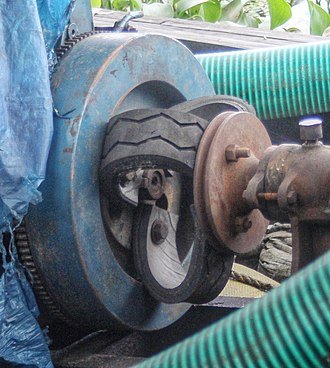Flexible couplings are mechanical devices used to connect two shafts that are slightly misaligned. They are designed to enable the transfer of torque from one shaft to another while compensating for any misalignment between them. Flexible couplings are essential in machinery applications where connecting two shafts with a rigid coupling can result in vibration, wear, and potential damage to the equipment.

Advantages of Flexible Couplings
Flexible couplings offer several advantages over rigid couplings. Some of these include:
1. Compensation for Misalignment: Flexible couplings allow for axial, radial, and angular misalignment between shafts. This feature helps reduce stress on the machinery and prevents premature failure due to misalignment.
2. Dampening of Vibration: Flexible couplings help dampen vibration caused by machinery movement. This feature results in a smoother operation of the machinery and reduces wear and tear.
3. Longevity: Flexible couplings generally last longer than traditional rigid couplings because they can compensate for misalignment and prevent stress on the machinery.
Types of Flexible Couplings
There are several types of flexible couplings used in various machinery applications. The most common types include:
1. Jaw Couplings: Jaw couplings are designed to connect two shafts that are parallel but slightly misaligned. They provide a low-to-medium torque capacity and require minimal maintenance.
2. Gear Couplings: Gear couplings are designed to connect two shafts that are misaligned but parallel. They provide high torque capacity and are ideal in heavy-duty machinery applications.
3. Disc Couplings: Disc couplings are designed to connect two shafts that are misaligned and non-parallel. They provide high torque capacity and are ideal in high-speed applications.
4. Grid Couplings: Grid couplings are designed to connect two shafts that are misaligned or parallel. They provide high torque capacity and dampen vibration.
Applications of Flexible Couplings
Flexible couplings are used in a variety of industrial and mechanical applications. Some of the most common applications include:
1. Pumps and Fans: Flexible couplings are used in pumps and fans to connect the motor shaft to the pump or fan impeller. This helps compensate for any misalignment and reduce vibration.
2. Conveyors and Material Handling: Flexible couplings are used in conveyors and material handling equipment to connect the motor to the drive shaft. This helps compensate for any misalignment and reduce wear and tear.
3. Power Transmission Systems: Flexible couplings are used in various power transmission systems to connect the motor to the load. This helps compensate for any misalignment and reduce vibration and stress on the machinery.
In conclusion, flexible couplings offer many advantages over traditional rigid couplings. They can compensate for misalignment, reduce vibration, and increase the longevity of machinery. There are several types of flexible couplings, including jaw couplings, gear couplings, disc couplings, and grid couplings, depending on the specific machinery application. Flexible couplings are used in a variety of applications, including pumps and fans, conveyors and material handling equipment, and power transmission systems. By choosing the appropriate type of flexible coupling, machinery can operate more efficiently and effectively.